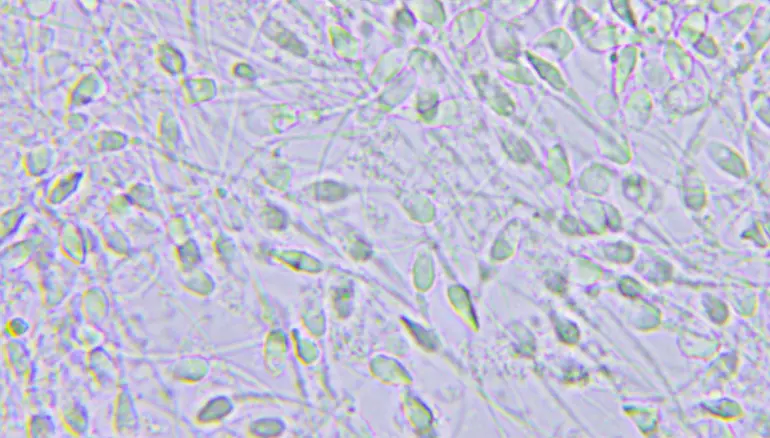Since the beginning of the ongoing pandemic, there’s been a lot of speculation about the effect of COVID-19 on male reproductive health[1].
Many academic articles claim likely adverse effects of COVID-19 on male fertility, based on a developing understanding of the virus and its effects, and what’s known about male sexual and reproductive function.
A recent meta-analysis[2] synthesized data from seven separate studies of the effect of COVID-19 on semen quality (conducted in China, Turkey and Germany) and since then another (Belgian) study has been published[3].
What does the evidence say about the effects of COVID-19 on semen quality, and what advice should we give to people hoping to have children?
Published studies of the effects of COVID-19 on semen are small — the largest includes 120 participants3 and the meta-analysis includes data from just over 200.
The meta-analysis acknowledges that causality cannot be inferred from any of its included studies, due to their cross-sectional, cohort or case-control design.
The Belgian study includes only assessments made after COVID-19; there are no pre-infection data with which to compare semen analyses from the groups of men studied at different times after recovery from the disease.
The meta-analysis concludes that semen parameters were found to be affected by the SARS-CoV-2 and effects on semen volume, sperm concentration, sperm number and progressive motility are highlighted in the abstract of the publication, but statistically significant effects were observed only for total sperm number and sperm motility (not semen volume, sperm concentration or progressive motility).
Reporting of the Belgian study is also flawed. Repeated statements that various semen parameters are “reduced…after COVID-19” are unjustified because measures were not made prior to COVID-19.
The reported statistical comparisons show differences between measurements made in separate groups of men after different periods of time since having COVID-19.
Strictly, this doesn’t prove that semen quality changes over time after COVID (serial measurements in individuals are required), let alone compared to before infection.
Only one of the studies included in the meta-analysis includes semen analysis in individual patients before and (three to six months) after COVID-19[4].
Semen volume, sperm concentration, total sperm number, progressive and total motility, and vitality were all lower after moderate COVID-19 than prior to the illness.
These same variables were lower after mild COVID-19 than they were before but reductions in semen volume, sperm concentration and the total number of sperm were not statistically significant.
The results of this study suggest COVID-19 does reduce the number and function of sperm, albeit only to a degree that may have no clinical significance4 and pose no threat to conception.
One other recent research article presents serial semen analysis data from 200 individuals before and after COVID-19[5].
COVID-19 caused reductions in semen volume, and sperm concentration, motility and morphology, but the clinical significance of this effect may be negligible.
Several studies that assessed semen quality after COVID-19 also attempted, unsuccessfully, to detect the SARS-CoV-2 virus in semen3,[6].
This is reassuring, given initial speculation about the potential for COVID-19 to be sexually transmitted[7], based on preliminary reports[8].
The magnitude of the effects of COVID-19 on semen seem related to disease severity, not infection itself.
Therefore, it’s likely that the effects of COVID-19 on semen are due to aspects of the host immune response to SARS-CoV-2 infection, such as fever, as for other respiratory viruses like influenza[9].
It seems that COVID-19 might have some impact on the quality and quantity of men’s sperm but it’s probably only for a short period of time and not threatening to their fertility.
This should be reassuring to people hoping to conceive after recovery from COVID-19.











